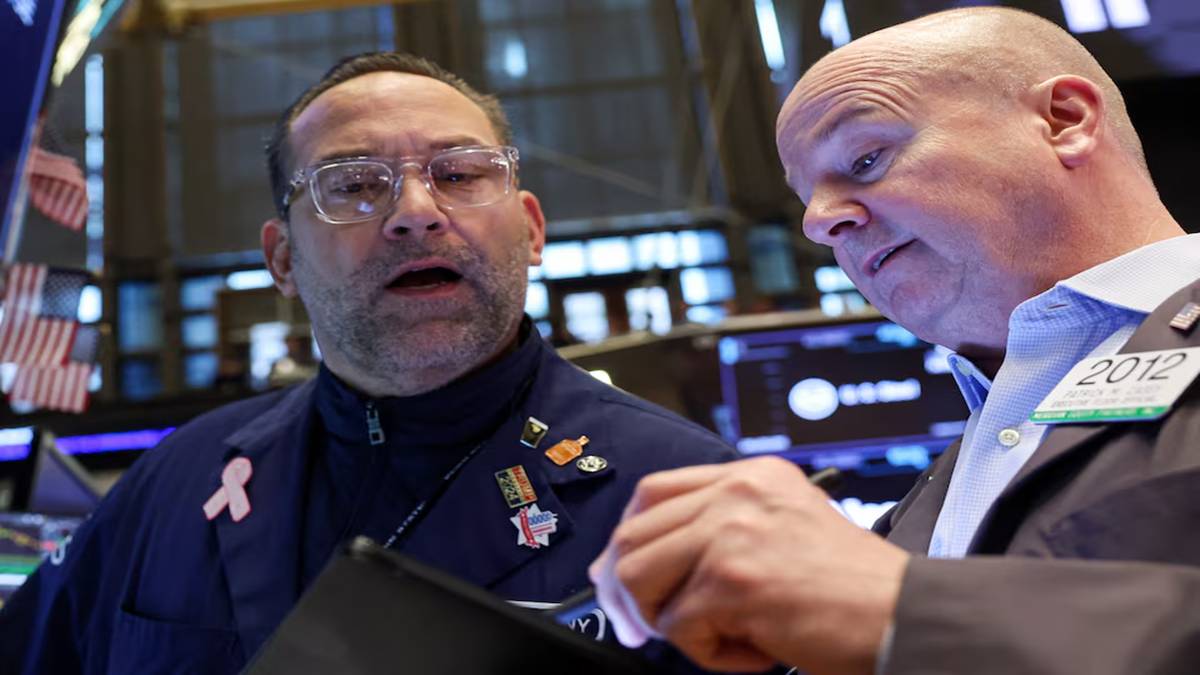The U.S. stock market faces a crucial week ahead, marked by a significant deadline regarding President Donald Trump’s tariff initiatives and an employment report that may indicate an economic slowdown. The S&P 500 experienced a decline last week, particularly on Friday, due to data suggesting persistent inflationary pressures. Earlier this month, the index entered correction territory, falling over 10% from its all-time high.
Market Performance and Investor Sentiment
Currently, the S&P 500 is down 9.17% from its peak on February 19 as apprehensions regarding the U.S. economy’s stability and trade policies keep investors on high alert. Many are anxious about the potential for renewed inflation sparked by Trump’s trade strategies. Eric Kuby, Chief Investment Officer at North Star Investment Management Corp, noted, “April is set to be a month filled with uncertainty and volatility following a challenging March.” He emphasized that various factors could shift market dynamics significantly.
- March Loss: S&P 500 saw a notable drop.
- Investor Anxiety: Economic and trade policy uncertainty dominates.
Tariff Talks and Consumer Confidence
Investors are eagerly awaiting clarity on tariff regulations, with Trump hinting at an announcement date of April 2. This announcement may include "reciprocal" tariffs, which Trump has dubbed “Liberation Day” for the U.S. economy. As a result, Wall Street analysts have revised their economic and corporate earnings forecasts, reflecting concerns that the current trade policy uncertainty is impacting both businesses and consumer sentiment.
A recent survey revealed that U.S. consumer confidence plummeted in March, hitting its lowest point in over four years. Households are increasingly worried about recession and inflation driven by tariffs. Jack McIntyre, a portfolio manager at Brandywine Global, stated, “Everyone is craving clarity because how the situation unfolds will dictate our strategic adjustments.”
Auto Tariffs Impact on the Market
On Wednesday, Trump announced a 25% tariff on auto imports, a move that could significantly increase vehicle costs for consumers. This development led to declines in shares for automakers like General Motors and Ford. According to data from ORATS, the options market indicates heightened volatility for the near-term S&P 500 options, particularly those expiring soon.
- Tariff Announcement: 25% on auto imports.
- Market Reaction: Automaker shares drop sharply.
Economic Outlook and Job Reports
As the first quarter draws to a close, investors are keeping a close eye on the upcoming U.S. jobs report, set to be released on April 4. Predictions suggest a slowdown in job growth, with estimates indicating an increase of 128,000 jobs in March, down from 151,000 in February. This report will be critical in assessing the broader economic landscape, particularly in light of efforts led by Trump ally Elon Musk to shrink the federal workforce.
Preparing for Earnings Season
As the first quarter ends, portfolio managers may make last-minute adjustments, potentially leading to fluctuations in asset prices. Additionally, the commencement of first-quarter earnings season is approaching, with reports expected to arrive later in the month, stirring further market activity.
Charlie Ripley, Senior Investment Strategist at Allianz Investment Management, remarked, “We’re currently in a risk-off environment, which has characterized this correction phase. It remains uncertain whether we have hit the market bottom.”
As investors navigate this turbulent period, the interplay between tariffs, consumer confidence, and employment data will play a vital role in shaping the market’s trajectory.











